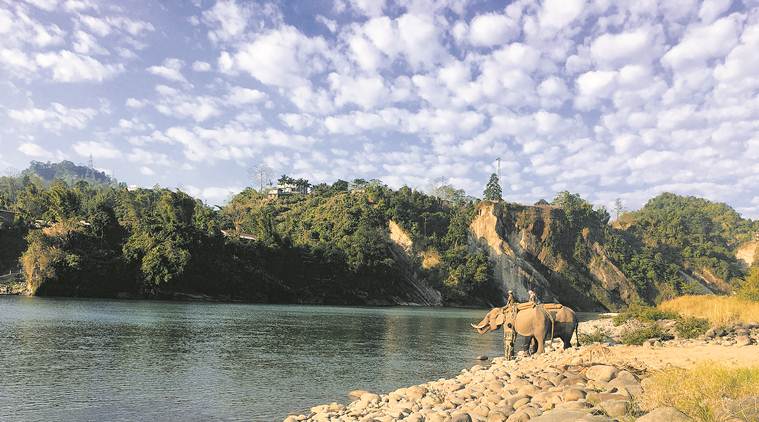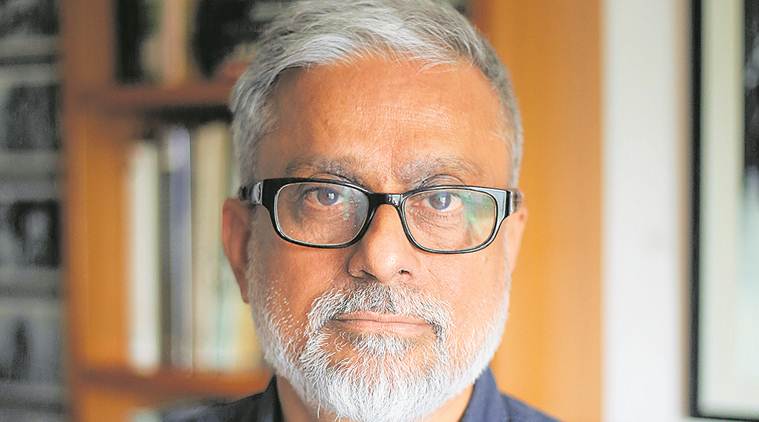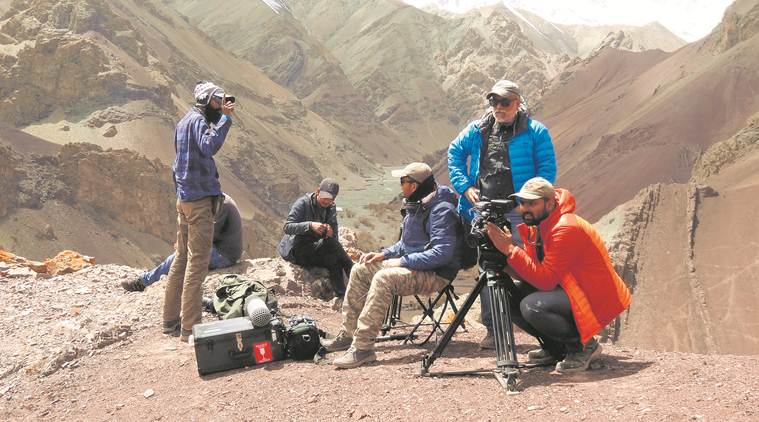- India
- International
The Invisible Army
In his latest docu-series, wildlife filmmaker Krishnendu Bose tells the stories of forest guards who man India’s forests, even though their work remains largely unrecognised.
 A scene from the series shot at the Pakke Tiger Reserve.
A scene from the series shot at the Pakke Tiger Reserve.
When Krishnendu Bose was at Pakke Tiger Reserve in Arunachal Pradesh, shooting with his crew in a gorge, a baby elephant slipped and fell off the cliff. It was terrified, struggling to get out, when a group of forest guards came forward and rescued it. They also spotted its mother, standing on the top of the hill, looking equally terrified. Bose also talks about how Khenrab Phuntsog, a forest guard in Ladakh’s Hemis National Park, suffered a heart attack, due to extreme weather conditions in the terrain. He also mentions a special squad that works round-the-clock in north Bengal’s elephant corridors to keep the jumbos off the farms.
The Delhi-based wildlife filmmaker, in his new docu-series Heroes of the Wild Frontiers, has given a face to hundreds of these forest guards and frontline staff, who man India’s forests and national parks. “Anyone working in the forests only gets to see animals, trees and forest guards; they are the only humans one sees in the wild. My learning curve, as a filmmaker and conservationist who understands little about ecology and behaviour though, a lot of it has been due to them. Their expertise has helped my craft a lot, especially when you’ve to place your boots on the ground, and ears and nose in the air. I have been thoroughly inspired by these guys,” says Bose, who has been making films on wildlife for the last 25 years. His 2007 film Tiger – The Death Chronicles had won the conservation award at International Wildlife Festival in Montana USA, while The Tiger Who Crossed the Line (2016) won the National Award in 2017.
 Krishnendu Bose (Express photo by Tashi Tobgyal)
Krishnendu Bose (Express photo by Tashi Tobgyal)
Heroes of the Wild Frontiers, which will premiere on Animal Planet September 16 onwards, starts at the Mahatma Gandhi Marine National Park in the Andaman islands, where one gets to see the breeding season of the Leatherback Sea Turtles and the bleaching of corals; and moves to the northern mountains in Hemis National Park to spot the snow leopards; and then to the Sunderban mangroves in West Bengal where the man-eating Royal Bengal Tiger resides. In each episode, we meet a forest guard to get a sense of his daily life and routine. “They have so much of knowledge and experience, but are always on the edge. And what do they get for it — pittance for a salary, undefined working hours, with their families being so far. A lot of credit goes to the top bureaucracy, policymakers and the government but the real men on ground are not talked about much. The last-mile connectivity to conservation in this country is through these guys,” he says. The series that was in the making for a year has been funded by a host of organisations — including World Wildlife Fund, Wildlife Trust of India and Wildlife Conservation Trust, among others.
“If you have three services who are entrusted with protection on the frontline — army, police and forest guards — you have to see who gets what. Forest guards are way poorer cousins with no medical facilities or rotation system. It was very difficult for us to get four-five days with them to shoot this series; if they got a message on the wireless, they had to rush,” says Bose.
 At the Hemis National Park.
At the Hemis National Park.
As one watches the series, one notices how it is the forest guard who acts as the wall during a man-animal conflict. “We saw how there were villagers pushing away the elephants and also the forest guards but while the former are trying to save their lives and property, the latter are trying to save the elephants, and in the process, saving people,” says Bose. In the episode on Hemis, we learn about the snow leopard tourism project initiated by the forest department, where they have involved local communities.

A solution to man-animal conflict is very difficult, he says. “India is a developing economy and also a conservation success story. But there is a flipside: if there are more tigers today and they are slipping out of protected areas as more forests are being cut, the conflict is only going to increase. People have to learn how to co-exist with wildlife,” says Bose, who hopes to add a second season to the series.
Photos
Apr 19: Latest News
- 01
- 02
- 03
- 04
- 05








































